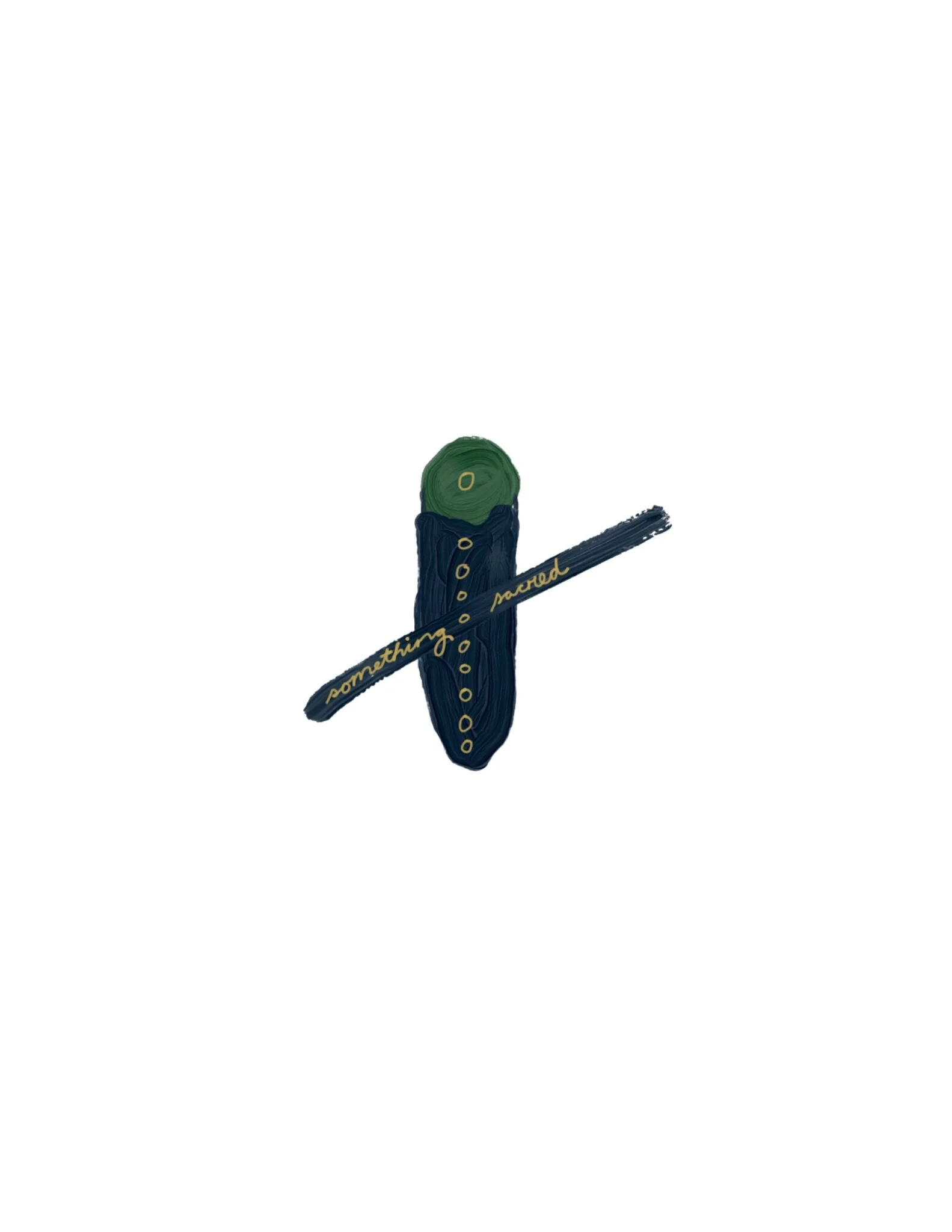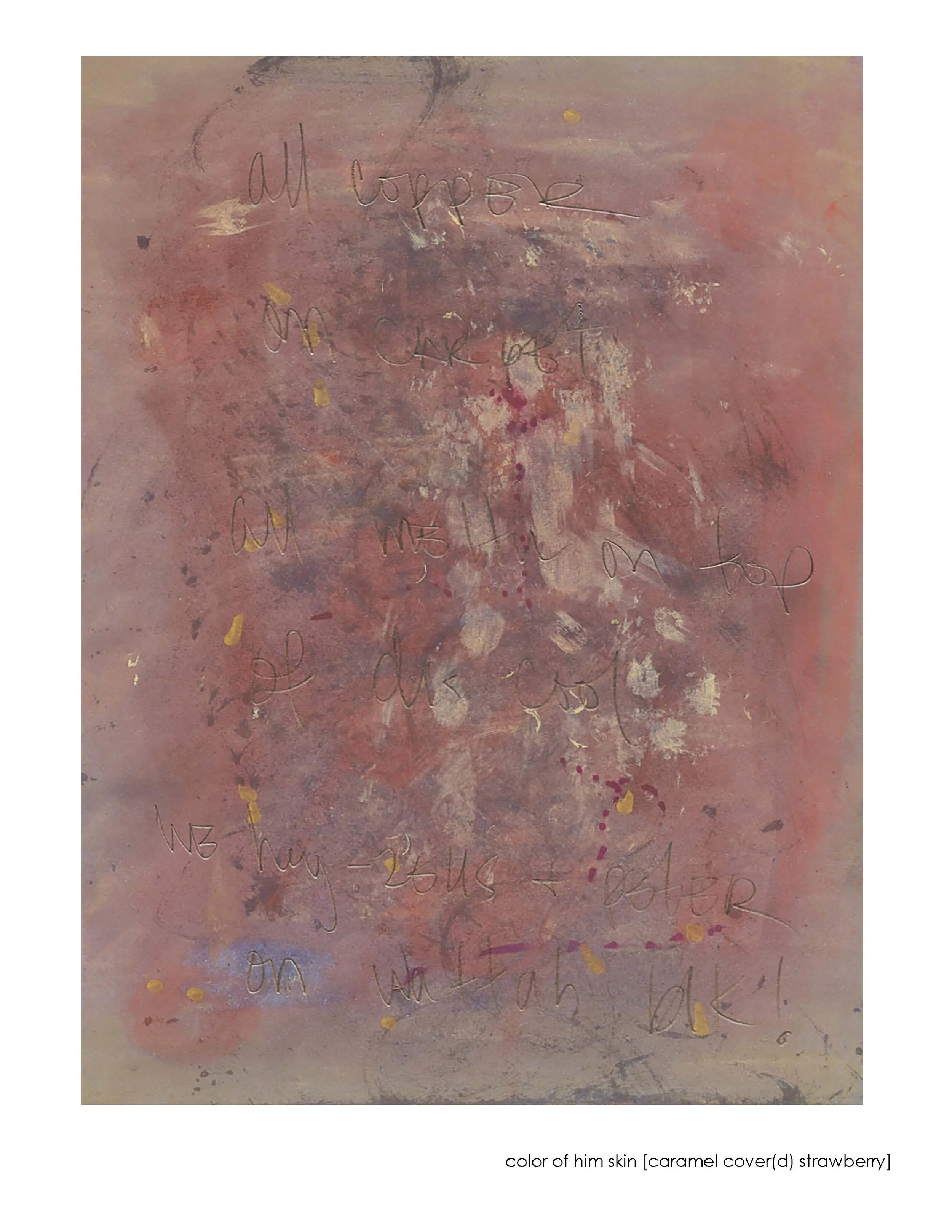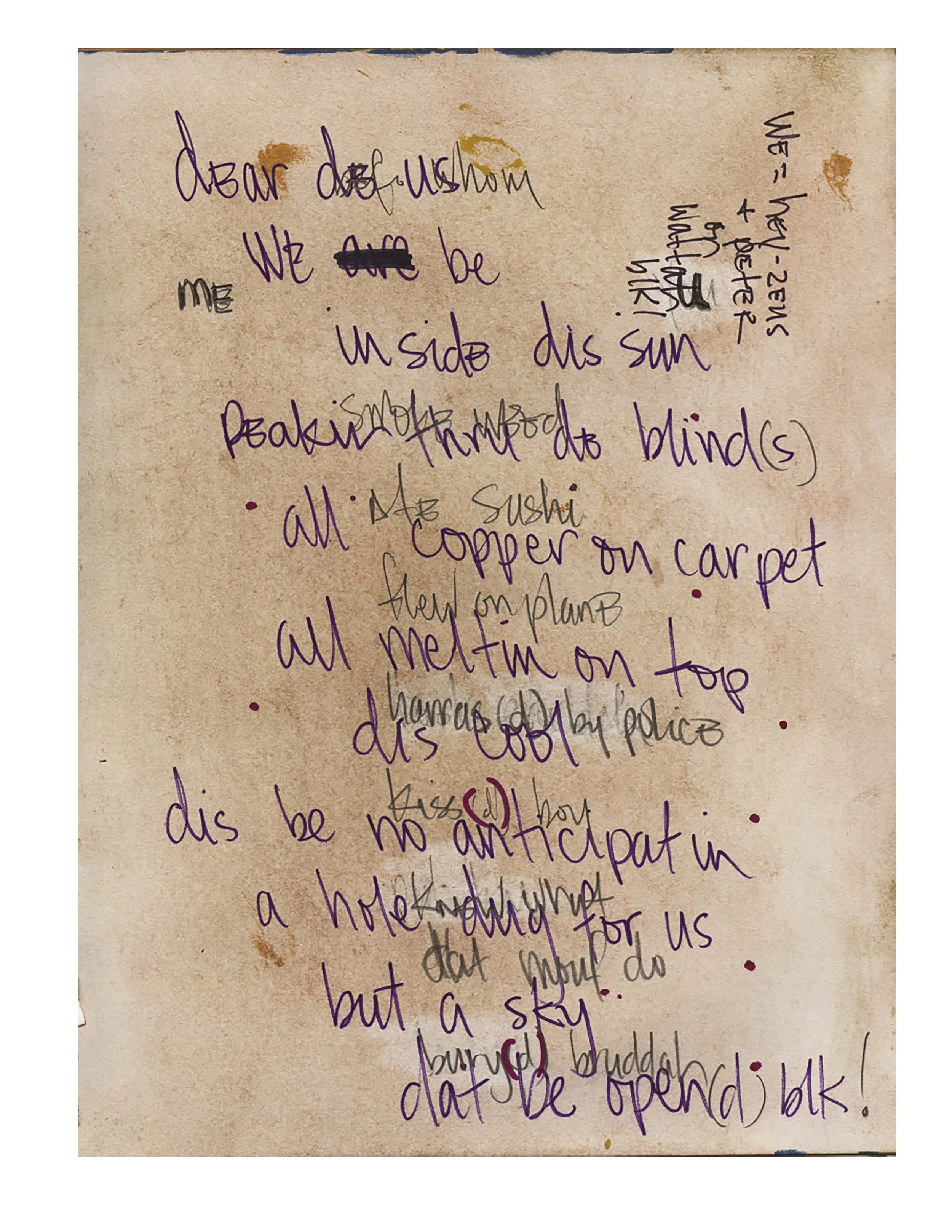Is alone together how it feels to be free? Ummm.
1.
Zoom! We’re foolish dreamers of the environment. Baraka would have spelled it environ/meant, like the way he spells place/meant – turn, circle, embrace, surround. What is the music’s environ/meant? Adorno speaks of Beethoven’s “internal world theater,” which is potentially interesting should we choose to pursue it, or try to surround it, or whirl to unleash it, but here we arewandering nowhere, wondering - while trying to keep myself from being alone - why no one wants to share. Why this refusal of aid in mutuality? No reason seems legitimate in the end, in spite of our trying to act like one might. Do y’all just expect me to do it all? Is that expectation my fault, having tried to do it all for way too long? These just subdivide a general question, which emerges “in relation” to a set of decisions that now seem bad. Whatever.
Cool! What’s a song or a fragment of a song that you’ve been listening to that you like? Let’s listen to it together. What is friendship? Let’s say it’s a practice. Let’s practice. What’s the difference between friendship and complicity? Are the enslaved, improvising on the ground, “complicit with the institution?” Yes, they are complicit through the institution. No, in the institution? Who ain’t? Who don’t wanna be? I stop the world and melt with you. I want to groove with you. I long for complicity. I don’t want to stand out from the general complicity as if I were a bell, or a free and perfect moral agent, as if there were some space outside this shit where only special folks ungather one by one. That place in the sun was always the political fantasy, and now they say, to the folks to whom they refuse membership, that if you don’t want to join, you ain’t shit. Well, I ain’t shit, then, though I’m all up in it. Come on, now. Who, all alone, all, along, don’t want to share the open wound, the nasty, gnostic murmur of this constant surfacing, this tilling and aeration, this abduction? What is it to remain intact, unfallen? Who don’t wanna gather, no matter the condition? Ask that as if it warranted apocalyptic address. Erotic, pre- and post-heretical, we make what we can’t choose, says E. P. Thompson, and at no appointed time. Solaire, but we ain’t the sun. We make it violent shared and shard available, affect, affection and affectability all intrasective as Glissant’s black shore. Neta Bomani, ain’t this always being played, and played out, in the music? Ain’t this a riot going on, where no one can be safe, all incomplete and empathetic?
The next cut is “Alone Together,” which is our condition only if we choose to accept it. The title is belied when Eric Dolphy and Richard Davis play “Alone Together.” They ply the solar tilling of the words. They change and flood like Cedric Spillers and Hortense Robinson. Their performance is a critique of being alone together that refuses to enact what it critiques. Their nonperformance is some criticism that releases what it criticizes. Their veer in the imperative to decipheris indecipherable. Animmediate, subimmanent, unemplotted and off-scale, they conspire all and all up in that fade and out of order and inseparable. They’re neither alone nor together nor alone together and what seems necessary is not a theory so much as a description of that, with that, from all and all up in that. Can description practice what it describes? Can we overtone? Can we cluster? We can either share vulnerability as if it were the essence of the commune or we can protect it as if it were private property. Now, how can we hear the former, not as choice or decision, but as actual condition, in its making, in the music? What if bass and drum are nothing other than joint exposure, the percaressive key to common wind? Prefer that violence to brutality. Just this continual, double-edged refusal to leave anyone alone. Having declined withholding in the hold, let’s zoom, to keep fucking up the already fucked-up technics of power and point, already given in that lecture you read and the hands-on outrage of the seminar. It was all already fucked-up, y’all, and the only good thing about that is that all fucked-up together we can fuck it all up (and fuck that northern prim).
Alone and together don’t really go together, though neither can really go it alone. In what the phrase would name, but also in its very constitution, there’s a hint Glissant picks up when he speaks of the solidary and the solitary, as if the assumed solitude of either word could ever have survived their solidarity. It’s a metaphysical swale that exists as function and denial of the initial condition of separability. The romantic comedy ideal is to be alone together, to have our relationship be the thing in which my individuation can thrive and be honored and protected, or to have our relation be the condition of my completeness. Physicists, in their particulate and particularist insistence upon the metaphysics that physics fucks up, call this the monogamy of entanglement. That intimates a marriage plot, or a merger; and if we say it that way it’s pejorative, unless you just want to be a business, man and wife. A businessman is a business, man and wife, which is all given in perfect clarity at the end of the movie when subjectivity, which is a particulate incapacity to be together, is cured by the random necessity of monogamous entanglement, which is a spiky pill or a spoonful of noxiousness that no one could ever really want to take. This slapstick Mitsein’s tragic failure, if languages can just be allowed to walk all over each other like that, reveals that what we have to want to want to want is fundamental, orgiastic saturation in gravity. It couldn’t be sadder that subjects can’t want to want that. Fortunately, being all fucked up, having been caught all up in that shit, we ain’t subject to or in it.
2.
The thing about Nina Simone ain’t so much about Nina Simone as it is about the reception of her myth, within which we revel. We need to be embarrassed by the ease with which we embrace the performative interplay of diva/warrior/madwoman, as if her permanent temporariness, as Sandi Hillal and Alessandro Petti and Fumi Okiji might put it, enacts the freedom of the artist from the hold of the ship. That worried satisfaction is too much like that thing where people want the administration to take a pay cut rather than vanish or the police to be impoverished rather than never. It’s the acceptance of the initial condition. What if all we share is violence to the (very idea of) initial condition? Trane spoke of this as improvising in and with and through the head of the tune. Wouldn’t we rather be complicit—violently, erotically, world-endingly—than free? Isn’t that what we wish free felt like? The thing about blackness, which is also to say the specific burden of black people, insofar as we ain’t free, is that we know what it feels like to be free. What it feels like to be free is to be the master expressing and imposing his feelings, feeling it on me, proving it on me with cutting imposition. Feel him? Feel how he feels? Equiano feels that shit and knows it, whispering daggers in the master’s, Hegel’s, ear as Hegel waits - all along, like all masters, like all free men - for the double-named unnamed to tell him who he is. The thing about blackness, which ain’t no thing, is that it refuses that condition. Feel me? Blackness refuses to limit its array to mirroring, even when it seems like mirroring - as in Fanon’s objectifying encounter with otherness - might be inertial, initial condition’s improvement or reform. Fuck the initial condition, which ain’t initial any muhfuckin’ way. Remember Furtwängler’s seismographic downbeats? Remember tune-up’s anarchy?
From our logisticality they extract logistics—but what else is new? We can expect, and should desire, no purity whatsoever. If we want to be friends, we have to be as affectable as Denise Ferreira da Silva. We have to work not to be alone together, not to be single in groups, either in the same room or in rooms of our own. It’s practice, not a game. Baraka said a long time ago that “the new black music is this: Find the self then kill it.” So, maybe we can demilitarize the avant-garde, but we can’t and ought not make it less brilliantly militant. It’s the love and need we share as wealth, the way we speak out of our vulnerability, so that internal world theater becomes a common exteriorization on and of the ground, unlabored work and till and play, a constant irruption of and through enclosure, the general disruption of the surround in embrace, surfacing’s constant upheaval, a generative and degenerative remaking of environ/meant, a socioecological party, mourning, morning, funereal, venereal, surreal, our ongoing making of the spot, which ain’t no point, which is resolved in neither one dimension nor three, which ain’t no theory but in practice.
So, lay your hands on the speakers. Don’t let rainy days and Mondays always get you down though here’s some heavy implication: the master, his freedom, is an effect of resistance. This is a problem for which resistance must account. If resistance is prior that means repression comes through it, as a chance, though not the only one. Freedom is a false name we give to a desire that can’t be named, only enacted and let go. You can’t ask the question concerning freedom if you assume its desirability; and it’s all but impossible not to assume its desirability from the enslaved’s impossible position, which is some more unfairness with which the enslaved is in appositional, irreparable refusal and release. All this implies and requires the exhaustion of the metaphysics upon which the political economy and political aesthetics of freedom are based. The enslaved have an empirical knowledge of freedom and that knowledge is the knowledge of the master’s endless solo performance, which we endure. This is the motherfucker whose freedom, whose being, whose power, whose identity, whose subjectivity, whose story, whose concept, is nothing other than the enactment, in theory and practice, of that mastery. We feel that freedom as insupportable weight, as intransigent whip, as interminable interrogation. I wish I didn’t know how it feels to be free. And, yeah, I have to be a fucked-up non-person to say some shit like that. It makes me unfit for polite company. I don’t want to be free. I don’t want to be complete. I don’t want to know that Nina Simone, whom I love, and Jerry Maguire, whom I loathe, are secret sharers in a common project of self-possession. It’s just easier not to know some shit.
3.
On the other hand, what I do know, and want to know, falling through myth while propelled by it, is that Simone knows all that. In and against the grain of self-possession, knowledge of freedom leaves something to be desired. Is alone together how it feels to be free? Harmony Holiday, harmonizing herself away as if she were a whole bunch of Lalah Hathaways, says “Ummm,” which says something like this: “black children don’t grow up casual,” they grow up shipped, in the massive and inescapable shadow of having been shipped that is their inheritance. Shipped black children sound (something) like Lalah Hathaway. This inheritance turns out to be the knowledge of freedom we must continually pretend not to have. Abandon, in some open constriction of the throat that troubles falsetto with foregiven overpopulation, throws throatsung shade on abandonment, Al Green already shar’d by Nate Mackey before they started singing and signing as Lindon’s last breath. It’s like when even while remaining in individuation’s frame, p’Bitek takes Rousseau to task. No one is born free, he says, and no one wants to be. It’s like our common, radical unfreedom bears a knowledge of freedom as an object of aversion disguised as an object of attraction, so that someday the word will have come and gone. The knowledge of shipped children is p’Bitek’s, too, insofar as the logistics of natal alienation is a generally post-umbilical condition, Africa’s anacrustic diaspora a matter of delivery, somehow both in and from the house, or womb, of bondage. What if, on the other hand, we choose to suffer (the shipped black children)? This violent question defies all grammar. Consider the voice’s over and underdubbed sufferance of itself – a riding, fugitive, microtonal insurgency of which dominant music wants to want to be rid or free. Nina Simone and Harmony Holiday, Eric Dolphy and Richard Davis, The Commodores and the Kalakuta Republicans, are not alone and past together in suffering and sharing selflessness. Shmile through world and heaven, unbodied difference coming on and in and out all over, to ‘joy our musical contraption.




























